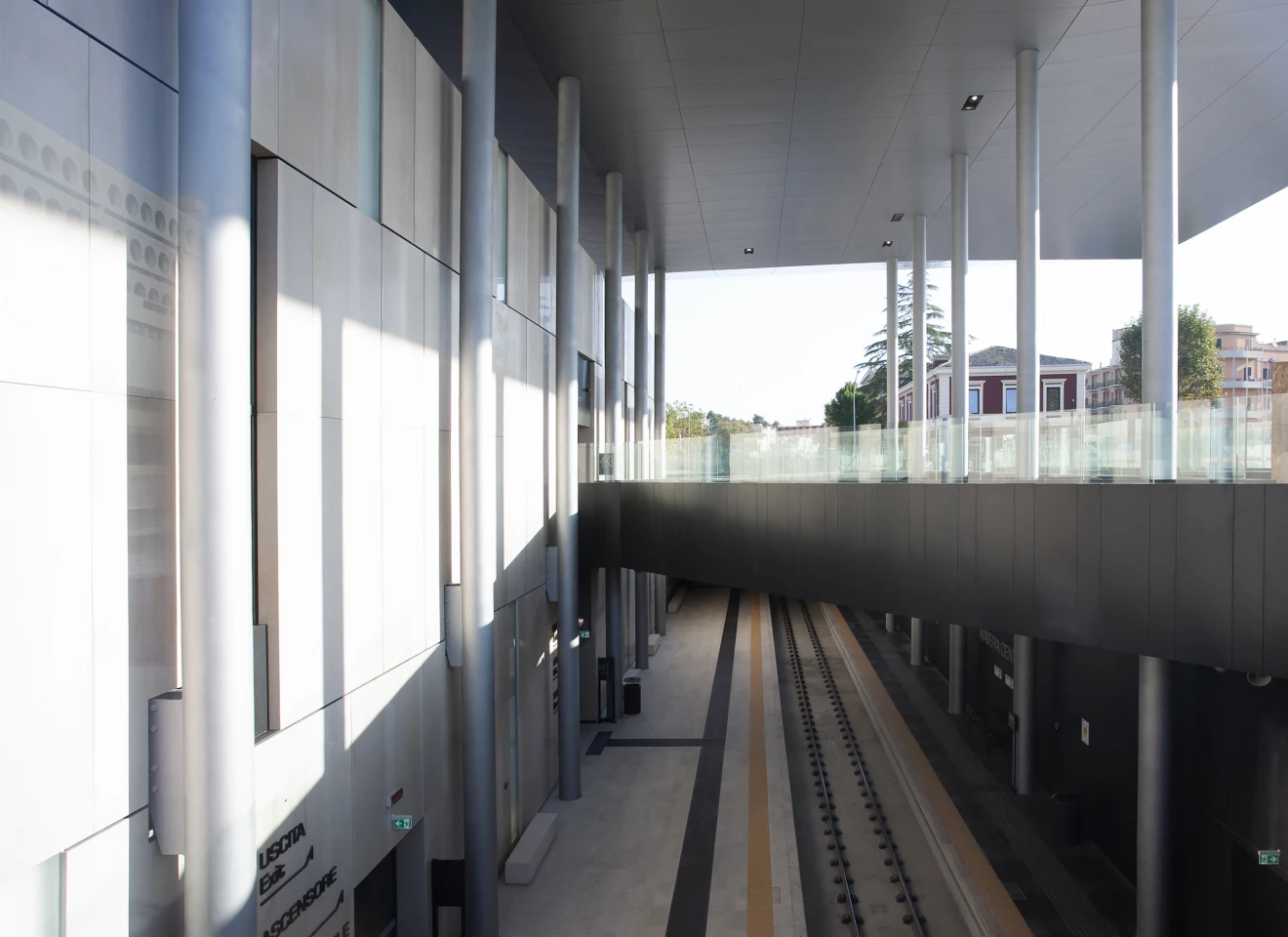Stefano Boeri Architetti has completed a new project in the firm's native Italy, and for once it's not covered in greenery. However, that's not to say that Matera Centrale has no element of green design, as the train station is partly powered by solar panels.
Located in Matera, southern Italy, Matera Centrale is constructed on the site of a former car park and is a big stylistic departure from the tree-covered buildings we've come to expect from Stefano Boeri since Bosco Verticale turned out to be a big critical success.
According to the firm, the design aims to provide a visual link between the city's amazing Sassi troglodyte cave settlement, which is thought to date back as far as 7,000 BCE, with nearby post-war districts and more modern architecture. The building is finished in stone that's meant to reflect the Sassi caves, as well as steel. It incorporates a public square on ground level, with the rail lines themselves in an underpass beneath.

Its large roof is supported by a dozen steel columns and provides shade and shelter. Additionally, the roof has been fitted with a total of 696 solar panels, which produce 271.440 KWh annually, reducing its draw on the grid.
"Designing a new railway station has allowed us to anticipate the characteristics of the city which this new station will provide access to, both in terms of location and architecture," says Stefano Boeri. "We’ve created a structure that we hope will become a sort of junction, as well as a place to take a break or interact with others. The new public space consists of two empty areas: one that runs alongside the railway tracks (six meters [19.6 ft] below ground), and a piazza (at ground level), which is sheltered and demarcated by a large roof."
Matera Centrale was officially inaugurated earlier this month and is now in operation.
Source: Stefano Boeri Architetti











